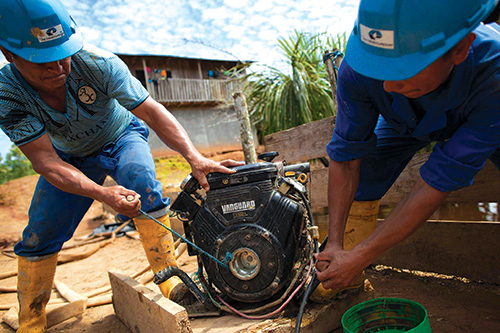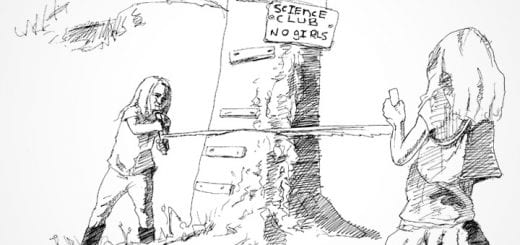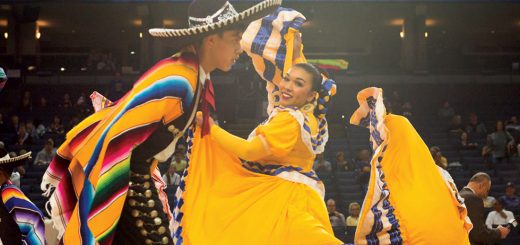Water and oil

In the Amazon region of Ecuador, the groundwater is so contaminated with petroleum that some people are forced to drink water whose toxic stench burns their nostrils before they even get close enough to take a sip. Photo: Mitch Anderson
In the Amazon region of Ecuador, the groundwater is so contaminated with petroleum that some people are forced to drink water whose toxic stench burns their nostrils before they even get close enough to take a sip.
San Jose State’s student chapter of Engineers Without Borders (EWB) is working with indigenous tribes in the region to find solutions for cleaning up the water. EWB-USA is a national organization that collaborates with local partners to design and implement sustainable engineering projects that support communities worldwide. When a consortium of indigenous tribes in Ecuador requested help from EWB-USA, the organization selected San Jose State’s proposal for the project.
Jason Graham, ‘13 MS Chemical Engineering, is the president of San Jose State’s EWB student chapter. He says engineers and universities “have an obligation for parts of the world where there is massive environmental damage. We have the resources and the ability to develop new technologies to remediate these kinds of things. If universities around the world are not going to do this, who will?”
The groundwater in the Amazon region of Ecuador was contaminated through oil drilling in the 1970s. While several nongovernmental organizations (NGOs) have tried to address the contamination with both family water filtration units and larger community treatment plants, many of the household units and all of the community plants are no longer working.
Last summer, Graham and fellow EWB students Sean Christensen, ’15 Aerospace Engineering, and Tim Hendrickson, ’14 Civil Engineering, traveled to Ecuador with their EWB-USA technical advisor to assess the situation. After purchasing hammocks upon arrival at the airport, the group climbed into a 30-foot canoe and traveled for three hours down a winding river with dense, green forest on all sides to meet with leaders of the indigenous tribes.
“I was surprised by the devastation,” says Christensen, who managed without his lost luggage during the trip. “You always hear about the pristine Amazon and the wildlife, but the region is still being attacked. I didn’t think we were going to be able to see oil, but there was crude oil on the surface of water that some people were continuing to drink. And there’s still drilling happening now.”
After getting to know the people in the communities and gathering information from the tribal leaders, the group spent the last year researching solutions for rainwater catchment and water filtration. When they return this summer, they hope to test different options to determine the best solutions for the area.
“One of the reasons that engineers are engineers is so they can give back to the community,” says Christensen. The project will likely take years to resolve. Graham says that he’s hopeful that there is enough enthusiasm in San Jose State’s EWB students to keep it going.
Watch the documentary Crude: The Real Price of Oil for a closer look at the region’s problems. Help the students fund their return trip to Ecuador.




